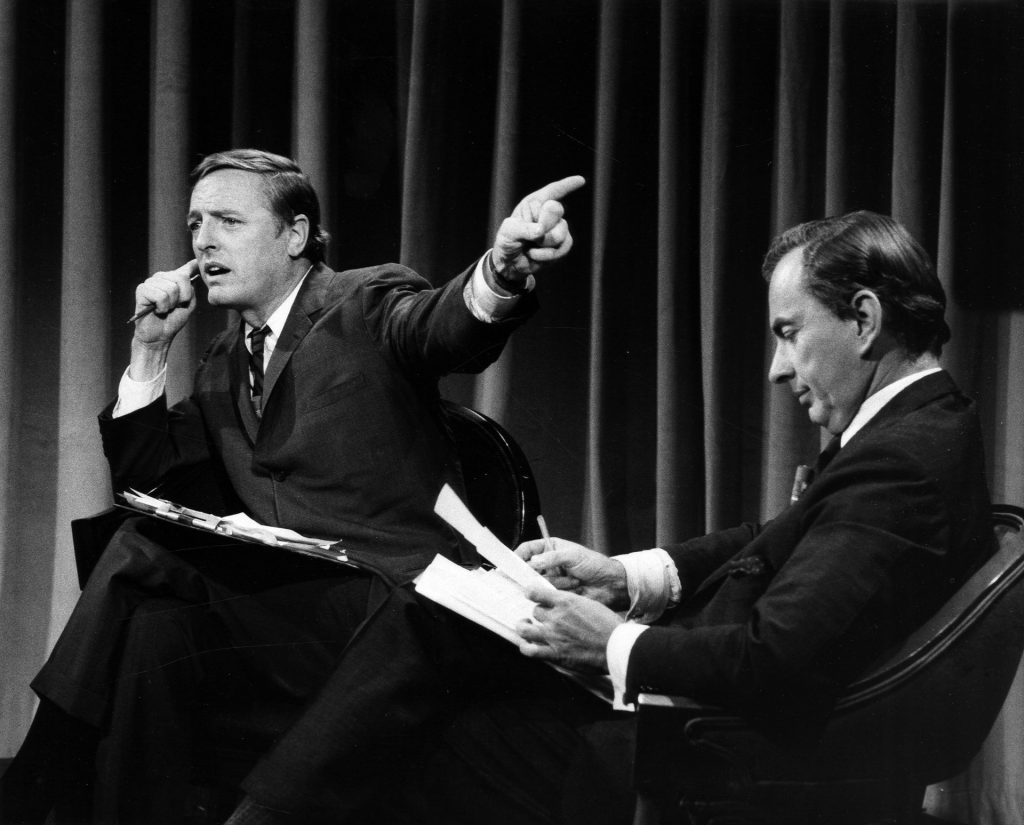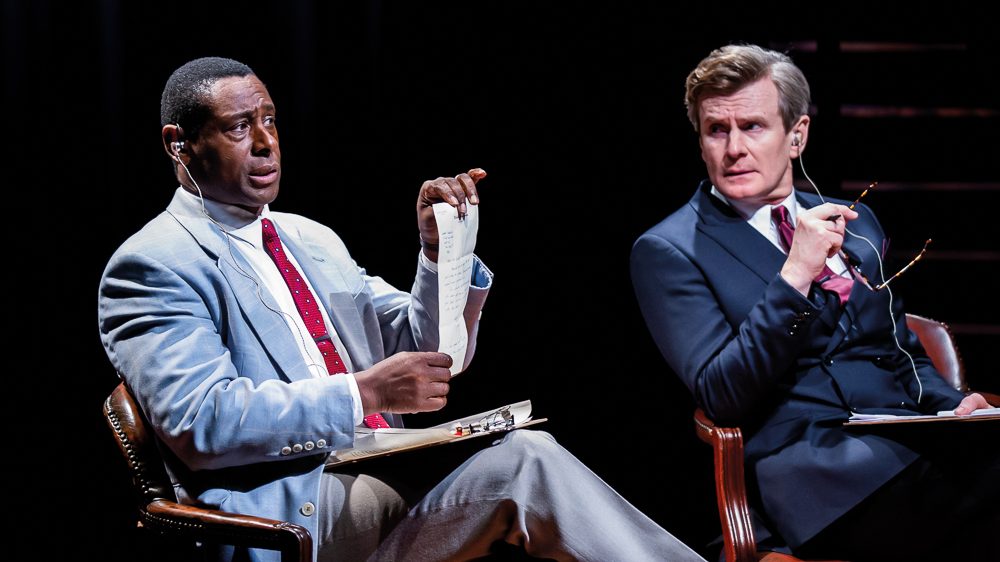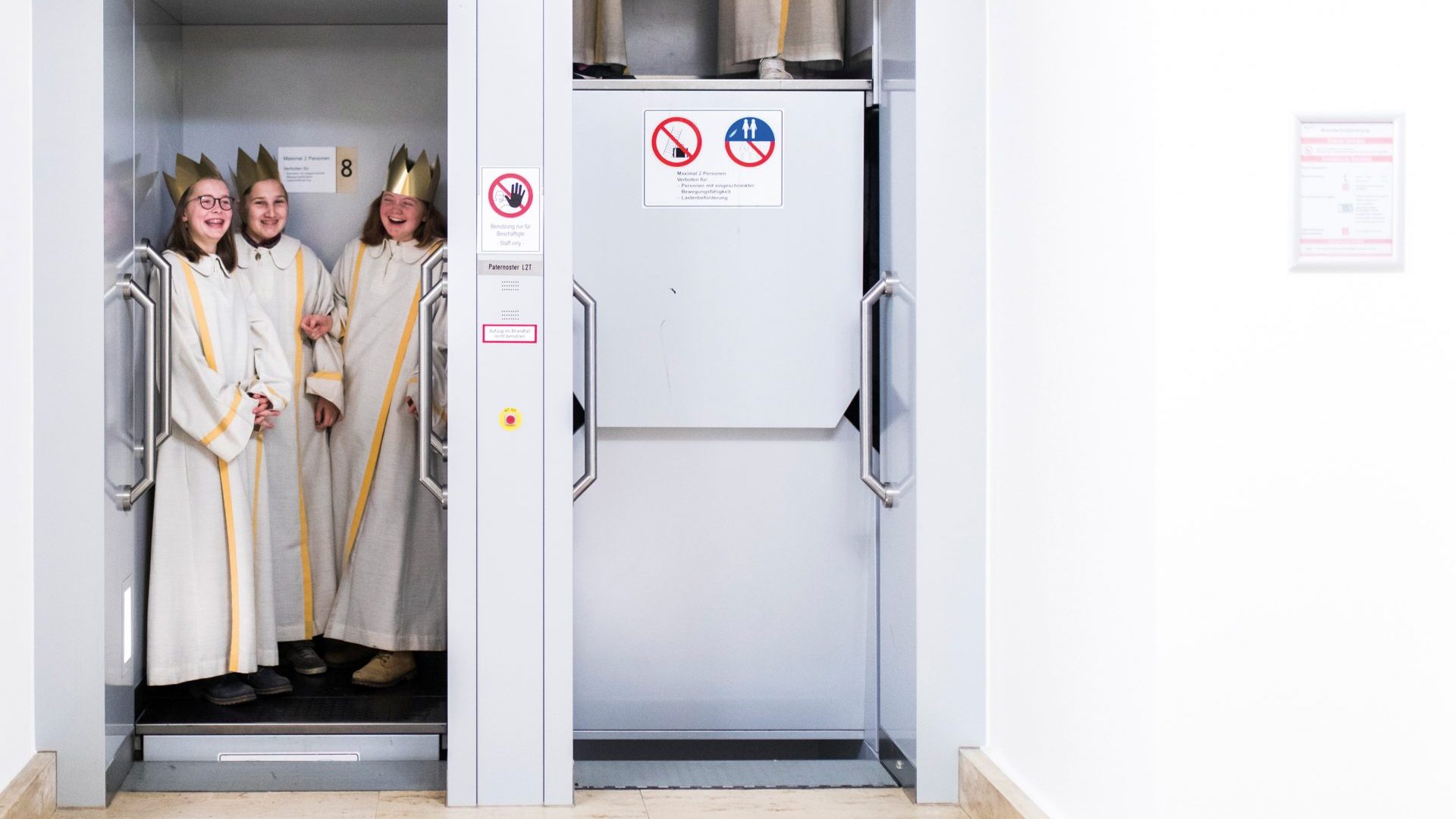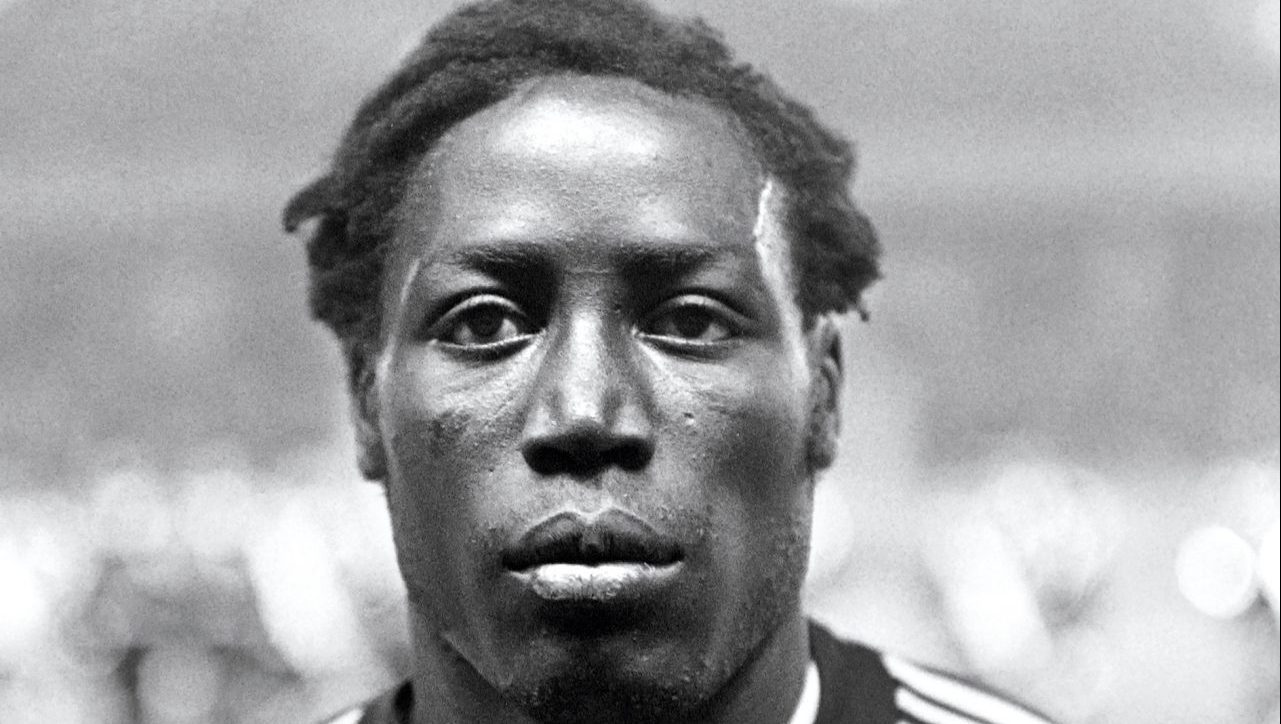Best of Enemies
Young Vic, London, until January 22
James Graham once gave me a hug in a theatre foyer which was, to put it
mildly, embarrassing as I was there to review one of his plays, without fear or favour.
I was at that time, however, an unashamed champion of this playwright’s work and had even taken him out to lunch, where he’d turned out to be intellectually dazzling company. This chap from the north of England
seemed the closest thing modern theatre had to an angry young man,
and I felt he had worthwhile things to say.
Somewhere along the line, however, the quantity of the work he was
producing appeared to matter a lot more than the quality. It started to
feel as if he’d simply run out of things to say. Worse, there was a disturbing
moral ambivalence to what he was writing.
It struck me as a damning indictment of Ink – his account of how Rupert
Murdoch came to dominate our media landscape with his acquisition
of The Sun – that hirelings of the nonagenarian newspaper tycoon, such
as News UK CEO Rebekah Brooks, were happy to block-book theatre seats for colleagues to see it.
I happened to know one of the characters in his drama – the late, great
Daily Mirror boss Hugh Cudlipp – and it especially irked me that he’d turned
this great working-class hero into a complacent, old-club bore. For the
avoidance of doubt, Cudlipp was a force for good in our country, whereas
Murdoch was – and is – a force for bad.
And, as for Brexit: The Uncivil War, what honestly did it achieve beyond
making Dominic Cummings into a star by having Benedict Cumberbatch play him?
All too often these days, Graham’s stage, film and television dramas feel as
if they’re about little more than actors regurgitating on stage vast quantities
of Wikipedia. To the extent that Best of Enemies has something to say, it’s mind-numbingly obvious: that the media has for some time been focusing not on the dissemination of news but comment, and this has turned out to be a very bad thing.
Whether this really began with the televised debates between the liberal
Gore Vidal and the right wing William F Buckley Jnr is a moot point. It’s
reasonable to wonder, too, why British audiences are being subjected to this
very American story, beyond helping its playwright realise his obvious ambitions for a Broadway transfer.
It’s a bewilderingly unfocused and over-populated play with few, if any,
of Vidal’s well-worn quotes not being repeated – “a man should never turn
down two things: sex and the chance to appear on television” etc – and what it lacks, once again, is a new take or any great insight into the subject matter. It’s what we call in journalism – when up against the clock and having to lift
material from other papers – “a cuts job.”

A wearying succession of big names are unconvincingly wheeled out on
stage – everyone from Petula Clark and Aretha Franklin to Andy Warhol and
Enoch Powell – and too often, they’re telling each other things they should
already know.
Sam Otto, as Vidal’s hunky boyfriend, tells him, for instance, that he has
written poetry, and he looks genuinely startled.
The Vidal/Buckley debates made for riveting television in America because
the protagonists were allowed time to develop their arguments, but Graham boils these marathons down to short sprints. When Buckley notoriously lost
his temper and called Vidal a “queer” – what is supposed to be this play’s
dramatic high point – it is not so much shocking as just another soundbite in a night of soundbites.
Playing respectively Buckley and Vidal, David Harewood and Charles
Edwards clearly neither look nor sound like the characters they are playing,
but, worse, they fail to communicate the weary sense of cynicism that
seemed to define both of these old lounge lizards in their lengthy on-screen fights.
The debates are relayed on big screens which seems like a straight lift from Michael Grandage’s stage production of Frost/Nixon, and the later
National Theatre adaptation of the film Network, directed by Ivo van Hove.
Those two productions both had a lot to say about television and big media
personalities, but Best of Enemies, while it admittedly offers a conscientious
overview of some now largely forgotten television debates in America, seems to be plumbing the shallows in comparison.
At one point, it appears to have dawned on Graham that the debates
were a bit like boxing, and, in a scene of embarrassing triteness, he actually
has Clare Foster – as Buckley’s wife – make the point by imitating a boxer’s
punches as she gives him some lines to say to Vidal.
Clearly desperate to give the play some meaning in its final moments,
Graham resorts to introducing his sole fictional character – Justina Kehinde as a “media analyst.” Seldom, if ever, has a media analyst had anything terribly interesting to say and this one is no exception. She simply intones that “more and more, we’re divided into our own communities of concern”.
I suspect that if this show does transfer to Broadway, American audiences who actually recall the debates will find all of this irredeemably patronising.
In terms of his domestic audience, if Graham had been serious about writing a drama about television from the Sixties that really did have an impact on political life here, then he should have focused instead on the satirical series That Was the Week That Was. I’ll leave it to him to Wikipedia it.




